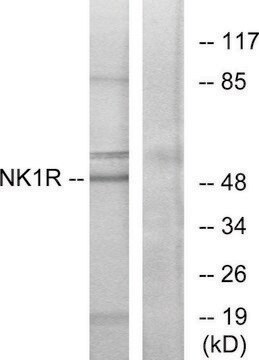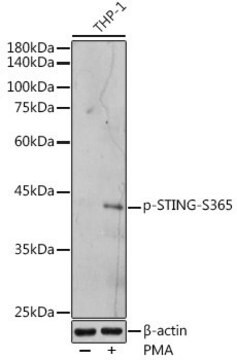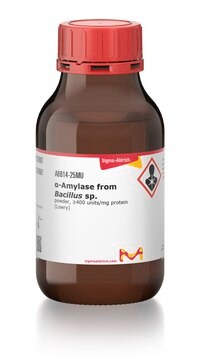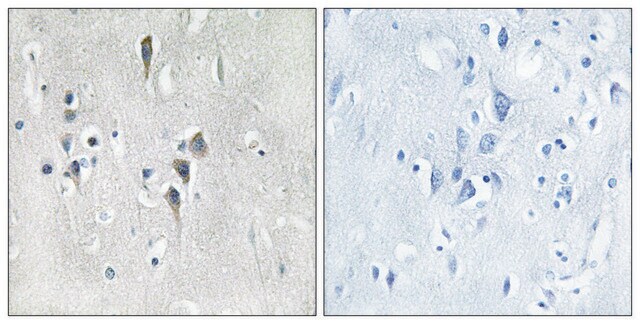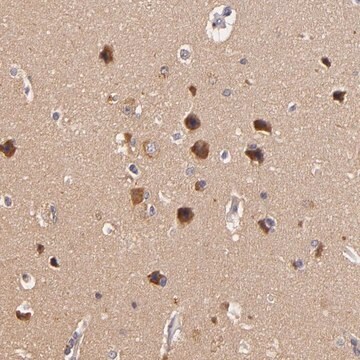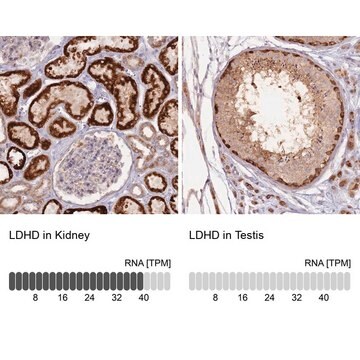MAB379
Anti-Glutamate Receptor 5, 6, 7 Antibody, clone 4F5
ascites fluid, clone 4F5, Chemicon®
Sinónimos:
GluR5/6/7
About This Item
Productos recomendados
biological source
mouse
Quality Level
antibody form
ascites fluid
antibody product type
primary antibodies
clone
4F5, monoclonal
species reactivity
rat, human, monkey
manufacturer/tradename
Chemicon®
technique(s)
ELISA: suitable
immunocytochemistry: suitable
immunohistochemistry: suitable
radioimmunoassay: suitable
isotype
IgM
NCBI accession no.
shipped in
dry ice
target post-translational modification
unmodified
Gene Information
human ... GRIK1(2897)
Specificity
Immunogen
Application
ELISA
RIA
Optimal working dilutions must be determined by end user.
Neuroscience
Neurotransmitters & Receptors
Physical form
Storage and Stability
Legal Information
Disclaimer
¿No encuentra el producto adecuado?
Pruebe nuestro Herramienta de selección de productos.
Storage Class
10 - Combustible liquids
wgk_germany
WGK 1
flash_point_f
Not applicable
flash_point_c
Not applicable
Certificados de análisis (COA)
Busque Certificados de análisis (COA) introduciendo el número de lote del producto. Los números de lote se encuentran en la etiqueta del producto después de las palabras «Lot» o «Batch»
¿Ya tiene este producto?
Encuentre la documentación para los productos que ha comprado recientemente en la Biblioteca de documentos.
Nuestro equipo de científicos tiene experiencia en todas las áreas de investigación: Ciencias de la vida, Ciencia de los materiales, Síntesis química, Cromatografía, Analítica y muchas otras.
Póngase en contacto con el Servicio técnico

